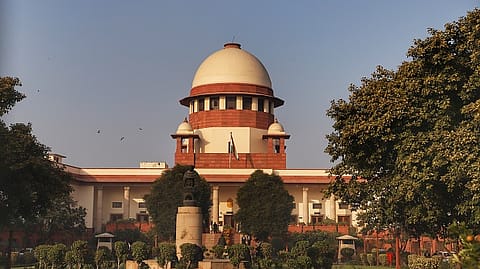Supreme Court upholds demonetisation; dissenting judge calls it 'unlawful'
It was "not relevant" whether the objective of the overnight ban was achieved, the majority judgment says.

The Supreme Court on Monday upheld the demonetisation of high value currency notes of ₹500 and ₹1,000 announced by Prime Minister Narendra Modi in 2016.
In a landmark judgment, the apex court said the Centre's decision-making process cannot be flawed as there was consultation between the RBI and the central government for a period of six months.
It was "not relevant" whether the objective of the overnight ban was achieved, four of the five judges on the Constitution bench said. Justice B.V. Nagarathna, however, called the move unlawful.
The bench dismissed a batch of petitions challenging the decision saying that the decision, being the Executive's economic policy, cannot be reversed. "There has to be great restraint in matters of economic policy. Court cannot supplant the wisdom of executive with its wisdom," said Justice BR Gavai while reading out the order.
In a strong dissenting judgment, Justice Nagarathna held that demonetisation was "unlawful" on legal grounds. "Parliament should have discussed the law on demonetisation, the process should not have been done through a gazette notification. Parliament cannot be left aloof on an issue of such critical importance for the country," Justice Nagarathna said.
The RBI should have initiated the note ban move, the dissenting judge said, adding that since it was done the other way round, the process was legally flawed.
Justice Nagarathna further noted that there was no independent application of mind by the RBI and only the opinion of the RBI's central board was sought, which cannot be said to be a recommendation.
Recommended Stories
Former finance minister P. Chidambaram, who appeared in the case arguing against the validity of demonetisation, said that the minority judgment has emphasised the important role of Parliament in a democracy. "We hope that in future an unbridled Executive will not thrust disastrous decisions on Parliament and the people," he said.
The minority judgement brings out the profound distinction between the plenary legislative power of Parliament and the limited power of the executive government, Chidambaram added.
The value and volume of banknotes in circulation increased by 9.9% and 5%, respectively, at ₹31,05,721 crore and 13.05 lakh, respectively, the Reserve Bank of India had said in its annual report for 2021-22.
Despite the central government's claim that demonetisation was an exercise to weed out black money, 44% of the respondents of a nationwide survey said that property purchases since high value currency demonetisation 7 years ago, continue to have a cash component. The survey, conducted by community social media platform LocalCircles found that property transactions were the top area of cash usage from a value per transaction standpoint. To the question as to what percentage of the value had to be paid in cash during the purchase of property (land, house, flat, shop, office, others) in the last 7 years, 8% of the respondents said that on an average, they had paid over 50% in cash.
(INR CR)